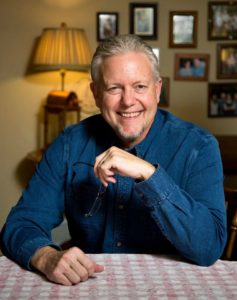What have you inherited?

And will you pass it on?
Find out why legacy is important by watching our Truth in Two (full text below).

Subscribe to MarkEckel.com (here). Find the MarkEckel.com YouTube Channel (here). Mark is President of The Comenius Institute (website). Dr. Eckel spends time with Christian young people in public university (1 minute video), teaching at Indiana University Purdue University at Indianapolis, and interprets culture from a Christian vantage point (1 minute video). Consider becoming a Comenius patron (here).
Picture Credit: Luke Renoe, Snappy Goat
FULL TEXT
For many centuries, the English occupied Ireland. Eliminating opposition, the English sought to destroy Irish history. So, teaching Irish tradition or culture was forbidden. The story is told of Irish parents who employed hedgemasters to instruct their children. These instructors taught in out-of-the-way spots—hedgerows, caves, or isolated fields. Avoiding English authority, the hedgemasters continued their instruction despite threats of imprisonment, even death. They taught with passion because their heritage depended on it.
Our heritage, whatever it may be, is our inheritance. We must decide if what we have inherited is important enough to keep. Whether or not we keep what we inherit is up to us. I believe that what has been given by others should be cared for by us. Our inheritance, our heritage, may come in the form of possessions, home, position, ideas, or beliefs. We believe, for instance, that passing on biblical principles of living life is imperative. Teaching the next generation how to think Christianly is our obligation. Passing on Scriptural interpretation about great literature, art, education, statecraft or any other thing is our responsibility. Caring for our culture, seeking peace and wholeness for our neighborhoods, is our custodial priority.
But our primary heritage is people. Ideas and beliefs reside in textbooks but are delivered by text-people. We believe ideas first change people and then people change culture. At Comenius we always talk about passing on our Hebraic-Christian heritage. The Psalmist said it best, “Until I am old and gray I will declare God’s mighty works to the next generation.”
Our heritage of culture, language, history, and tradition is important. We are Irish hedgemasters, passionate caretakers of what has been given to us that we might, in turn, give our inheritance to those who follow. But ultimately our heritage, our legacy, is not what, but who we leave behind.
For Truth in Two, this is Dr. Mark Eckel, President of the Comenius Institute, personally seeking Truth wherever it’s found.




















